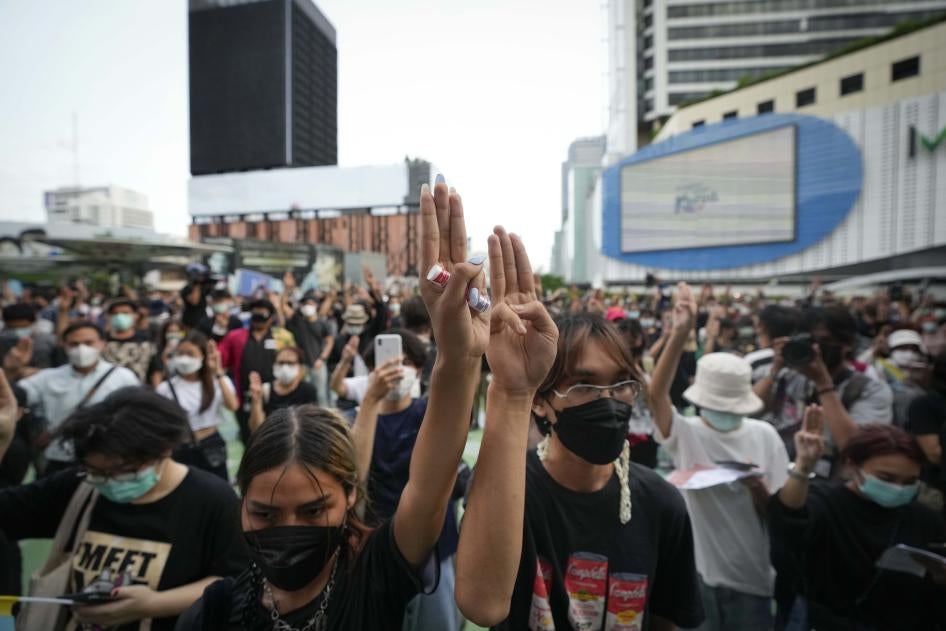(New York) – The Thai government further repressed basic rights and cracked down on the youth-led democracy movement in 2021, Human Rights Watch said today in its World Report 2022.
“Thai authorities have prosecuted dissenters, violently dispersed peaceful protests, and censored news and social media,” said Brad Adams, Asia director at Human Rights Watch. “Respect for human rights in Thailand has gone from bad to worse while the government’s promises of reform remain unfulfilled.”
In the 752-page World Report 2022, its 32nd edition, Human Rights Watch reviews human rights practices in nearly 100 countries. Executive Director Kenneth Roth challenges the conventional wisdom that autocracy is ascendent. In country after country, large numbers of people have recently taken to the streets, even at the risk of being arrested or shot, showing that the appeal of democracy remains strong. Meanwhile, autocrats are finding it more difficult to manipulate elections in their favor. Still, he says, democratic leaders must do a better job of meeting national and global challenges and of making sure that democracy delivers on its promised dividends.
The momentum of Thailand’s democracy uprising – symbolized by the protesters’ three-finger salutes – was seriously disrupted by the Covid-19 pandemic and subsequent lockdown measures, along with the authorities’ harassment, violent crackdown, and prosecution of protesters.
The government routinely enforced censorship, including on social media platforms. Since Prime Minister Prayut Chan-ocha brought back lèse-majesté prosecutions in November 2020, at least 154 people have been charged under article 112 of the penal code for “insulting the monarchy.” Critics of the monarchy have also been prosecuted under sedition sections of the penal code, cybercrime laws, and other legal provisions.
Prominent young democracy activists, including Arnon Nampha, Parit Chiwarak, Jatupat Boonpattararaksa, and Panusaya Sithijirawattanakul, are in pretrial detention on lèse-majesté charges that could take years to be concluded in the courts.
The government failed to ensure that human rights defenders can work in a safe and enabling environment, putting them at risk of physical attacks and retaliatory lawsuits. There has been little progress in investigating assaults, enforced disappearances, and killings of human rights defenders. In February, the government introduced a draft law to tightly control all civil society organizations and impose compulsory registration. A revised draft was pending at year’s end.
Despite repeated government pledges, including at the United Nations Human Rights Council’s Universal Periodic Review (UPR) session on Thailand’s human rights record in November, Thailand still has not passed a law making torture and enforced disappearance a criminal offense.
The government showed serious disregard for its legal obligations to protect refugees and asylum seekers, arresting and deporting them to Cambodia and elsewhere where their lives and freedom would be at risk. Concerned governments and the UN refugee agency (UNHCR) strongly condemned this practice. In November, the government forcibly returned three UNHCR-recognized refugees to Cambodia even though UNHCR had informed them that these people were under its protection.
The United States, European Union, and like-minded governments continued to press Thailand on serious human rights concerns but little progress was made in reversing the government’s abusive policies, laws, and practices.








